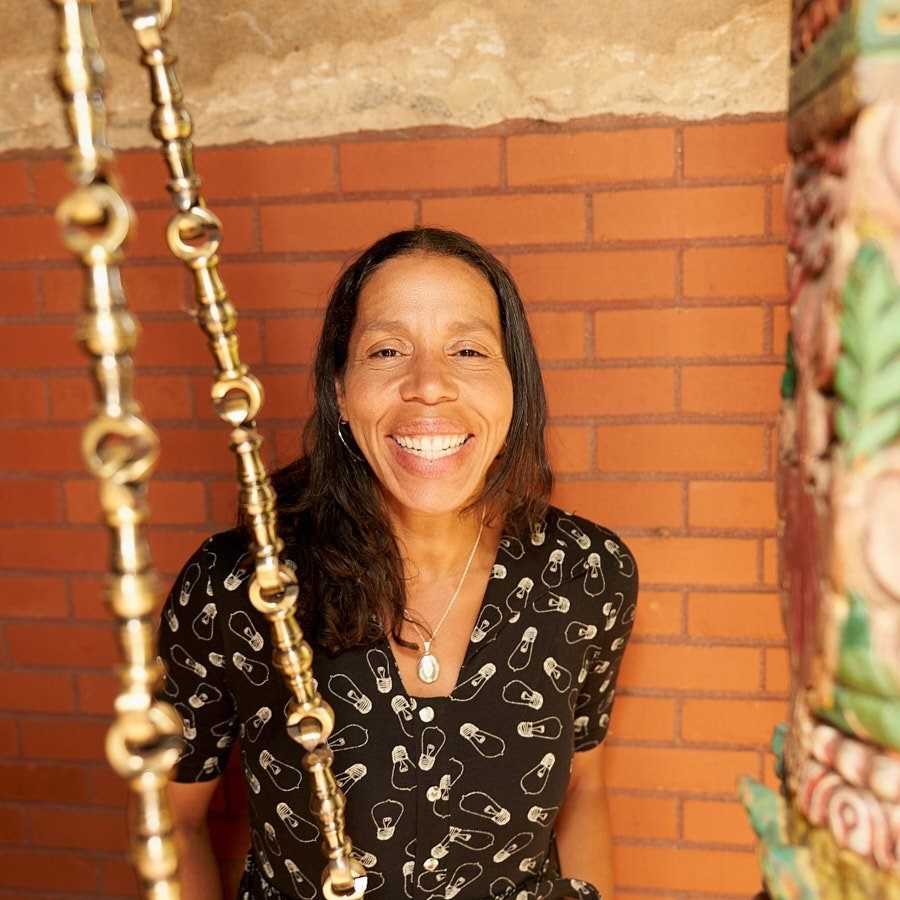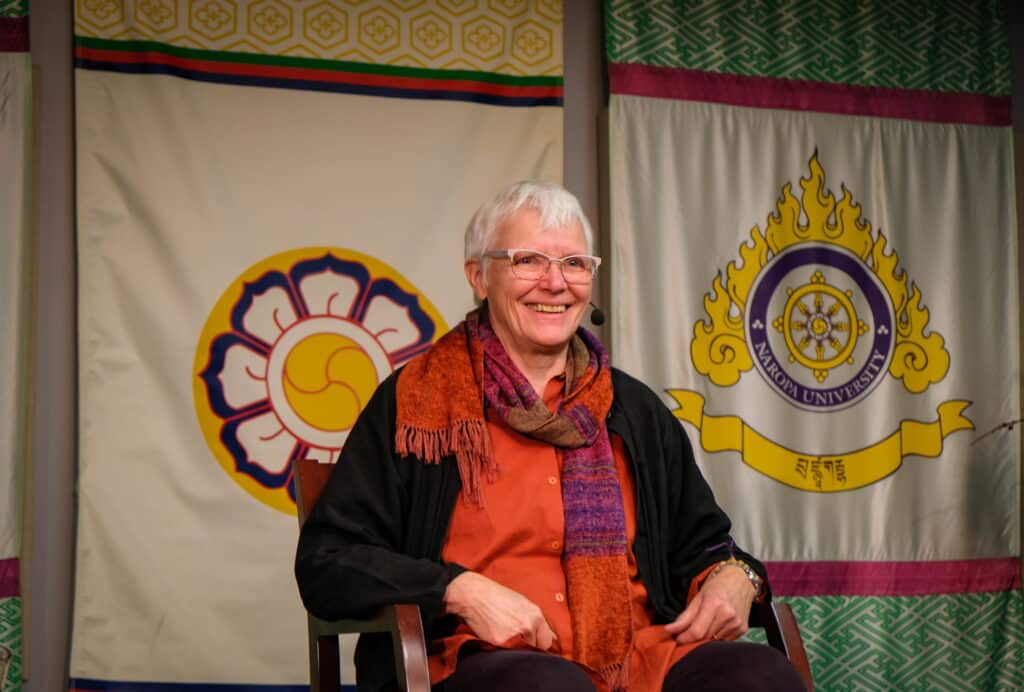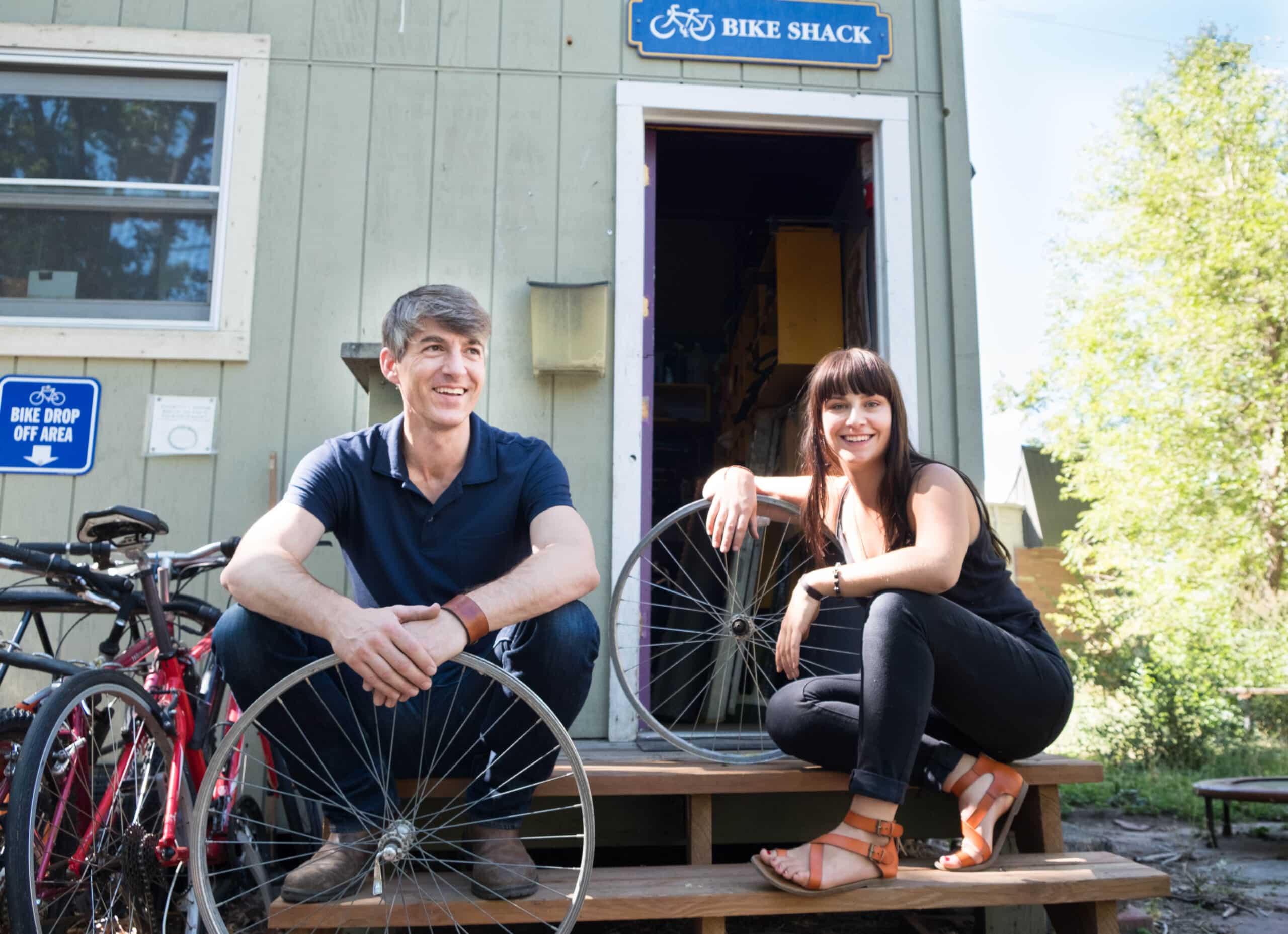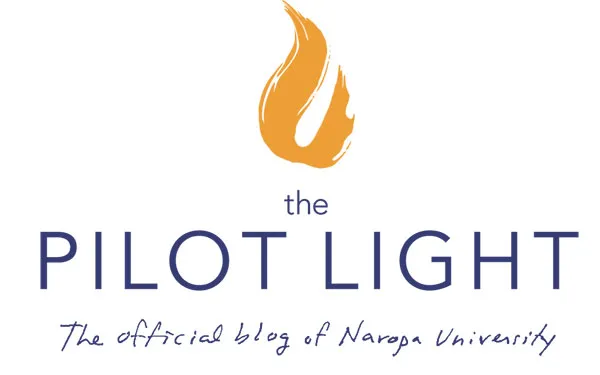
Practice day is a time of mid-semester renewal and community. Our recent theme was centered around Returning the Self to Nature, a borrowed title from the keynote speaker Jeanine M Canty’s book about how to undo our collective narcissism and heal our planet.
The morning started with Tai Chi, where folx were taken through a series of movements that ended with us walking on ice. The instruction was to lift one foot in total balance and make slow steps with only one foot fully on the ground at any time. It was a bifurcated way of walking, balancing the weight from right to left.
 I stayed for Judy Lief’s instructions on sitting and walking meditation as well. She was Naropa’s first president after Chögyam Trungpa Rinpoche. She reminded us to relax—that this practice was meant to be natural. What was particularly fun about large group walking meditation was these moments of silent negotiation between you and other folx on the path where you had the opportunity to yield to the other, to give up your ground so that the flow is seamless. I cherished these moments. We were meant to circumnavigate the room, but many chose playful zig-zagging routes between the rows as the outer circle was dense and slower moving.
I stayed for Judy Lief’s instructions on sitting and walking meditation as well. She was Naropa’s first president after Chögyam Trungpa Rinpoche. She reminded us to relax—that this practice was meant to be natural. What was particularly fun about large group walking meditation was these moments of silent negotiation between you and other folx on the path where you had the opportunity to yield to the other, to give up your ground so that the flow is seamless. I cherished these moments. We were meant to circumnavigate the room, but many chose playful zig-zagging routes between the rows as the outer circle was dense and slower moving.
For Jeanine M Canty, professor in Transformative Studies Doctoral program at the California Institute for Integral Studies, this was a homecoming for her having previously been the chair of the Environmental Studies program. She adeptly walked us through the definitions of narcissism and how that applies to the current cultural zeitgeist we find ourselves in. Between our belief in special privileges, like we own the earth and can take from it, to the cultural narrative that climate collapse isn’t real, we find ourselves deeply in need of collective healing so that we can tackle the healing needed for the planet. Her lecture included many practices that we did together, like visualizing we were trees going through our life cycle and shaking off our leaves in the fall—letting our burdens fall to the ground. This link goes to a similar lecture, and her book is available here.
One of my favorite activities of practice day though was the BIPOC lunch; this lunch is where one can meet all the other BIPOC folx in other majors as well as staff and faculty. We broke bread over a nourishing stew from FED Boulder, who make meals from food waste, and we had a boast and toast where alcohol-free champagne is served and folx get to speak about the cool things they are doing. It’s the interstitial space that sometimes makes the event, and we played Guess My Sign, one of the highlights of lunch.

Next, I opted for an event that was an interactive walk with Michael Bauer. We started with tasting and smelling good dirt. We also got an education on some of the reclamation and planting work happening at Nalanda. As we headed towards the Sombrero Marsh we were spontaneously greeted by the folx who run the Thorne Nature Center, who told us about their bird banding program. The theme of the walk was finding ways we can participate in being a beneficial keystone species.
For Practice Day as a whole, I realized that the opportunity to rest and recharge together is a novel concept in a culture that has cultivated narcissism. There is no glory or pedestal for respite, and yet it’s the most revolutionary act we can practice.—Monera Mason, Community Manager and MDiv Student


